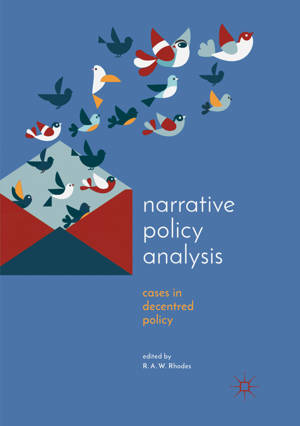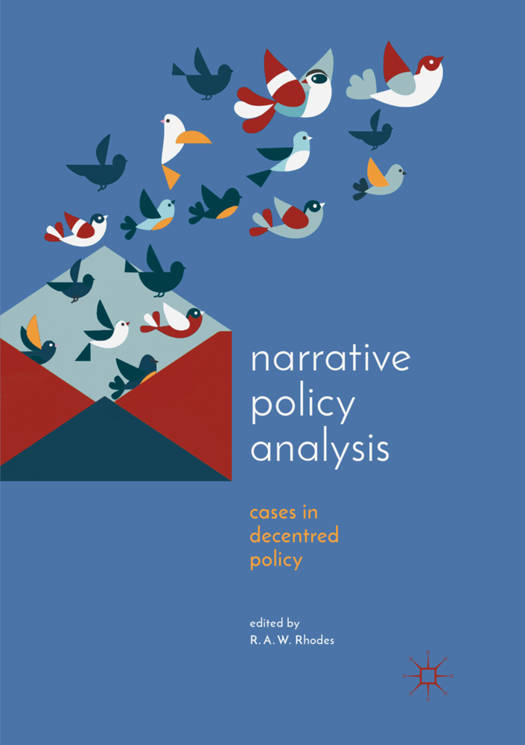
En raison d'une grêve chez bpost, votre commande pourrait être retardée. Vous avez besoin d’un livre rapidement ? Nos magasins vous accueillent à bras ouverts !
- Retrait gratuit dans votre magasin Club
- 7.000.000 titres dans notre catalogue
- Payer en toute sécurité
- Toujours un magasin près de chez vous
En raison de la grêve chez bpost, votre commande pourrait être retardée. Vous avez besoin d’un livre rapidement ? Nos magasins vous accueillent à bras ouverts !
- Retrait gratuit dans votre magasin Club
- 7.000.0000 titres dans notre catalogue
- Payer en toute sécurité
- Toujours un magasin près de chez vous
Narrative Policy Analysis
Cases in Decentred Policy
147,95 €
+ 295 points
Description
Narratives or storytelling are a feature of the everyday life of all who work in government. They tell each other stories about the origins, aims and effects of policies to make sense of their world. These stories form the collective memory of a government department; a retelling of yesterday to make sense of today. This book examines policies through the eyes of the practitioners, both top-down and bottom-up; it decentres policies and policymaking. To decentre is to unpack practices as the contingent beliefs and actions of individuals. Decentred analysis produces detailed studies of people's beliefs and practices. It challenges the idea that inexorable or impersonal forces drive politics, focusing instead on the relevant meanings, the beliefs and preferences of the people involved.
This book presents ten case studies, covering penal policy, zero-carbon homes, parliamentary scrutiny, children's rights, obesity, pension reform, public service reform, evidence-based policing, and local economic knowledge. It introduces a different angle of vision on the policy process; it looks at it through the eyes of individual actors, not institutions. In other words, it looks at policies from the other end of the telescope. It concludes there is much to learn from a decentred approach. It delivers edification because it offers a novel alliance of interpretive theory with an ethnographic toolkit to explore policy and policymaking from the bottom-up.
Written by members of the Department of Politics and International Relations of the University of Southampton, with their collaborators at other universities, the book's decentred approach provides an alternative to the dominant evidence-based policy nostrums of the day.
This book presents ten case studies, covering penal policy, zero-carbon homes, parliamentary scrutiny, children's rights, obesity, pension reform, public service reform, evidence-based policing, and local economic knowledge. It introduces a different angle of vision on the policy process; it looks at it through the eyes of individual actors, not institutions. In other words, it looks at policies from the other end of the telescope. It concludes there is much to learn from a decentred approach. It delivers edification because it offers a novel alliance of interpretive theory with an ethnographic toolkit to explore policy and policymaking from the bottom-up.
Written by members of the Department of Politics and International Relations of the University of Southampton, with their collaborators at other universities, the book's decentred approach provides an alternative to the dominant evidence-based policy nostrums of the day.
Spécifications
Parties prenantes
- Editeur:
Contenu
- Nombre de pages :
- 273
- Langue:
- Anglais
- Collection :
Caractéristiques
- EAN:
- 9783030095406
- Date de parution :
- 12-01-19
- Format:
- Livre broché
- Format numérique:
- Trade paperback (VS)
- Dimensions :
- 148 mm x 210 mm
- Poids :
- 349 g

Les avis
Nous publions uniquement les avis qui respectent les conditions requises. Consultez nos conditions pour les avis.





